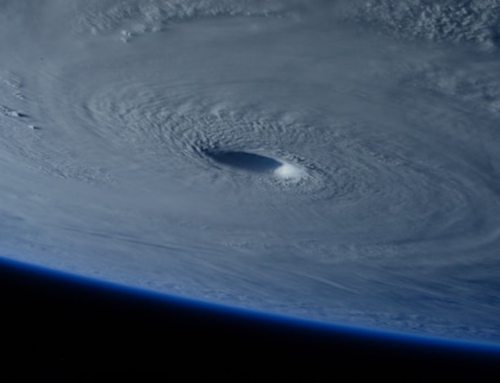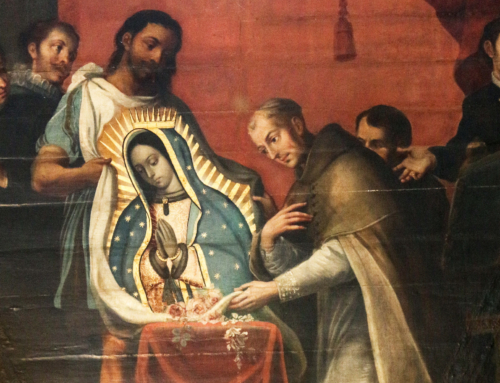One of the reasons that many Christians are uncomfortable with the idea of human evolution is that it seems to suggest that the fact we are here is an accident, and there is nothing stopping us from evolving into something else down the road. There are many ways to address the question of why humanity evolved, but the one I want to focus on looks at the end of evolution. Specifically, is there some stopping point to evolution, and can that stopping point be considered the goal it was ordered to in the first place?
In looking for an end of evolution, we must first ask whether evolution has actually come to rest anywhere. For any plant or animal we find in nature, the answer is in part, yes. Evolution has finished, has done its job and contributed to the production of an organism properly adapted to its environment. Of course, this assumes that the environment is stable, which brings us to the “no” part. Any stable population that is placed in a new environment, assuming it can survive at all, will begin to adapt to the new surroundings. Like so many natural processes, evolution does not come with a determined endpoint, but its operation depends on many factors. Gravity may bring a boulder to rest on the edge of a cliff, but an additional push, whether by wind, earthquake, or human hand, will start the process of falling again until gravity finds the boulder a new place of rest. Arguing for an absolute endpoint intrinsic to evolution would seem to require that all evolution is pushing life to the same state of rest which, if the diversity of life is any indication, seems unlikely.
If there is no absolute endpoint of evolution, we can still ask about the particular states of rest we find. In particular, is man still evolving? This is a complicated and much debated question. For instance, many cultural variations, ranging from skin color, to lactose intolerance, to the ability to breathe at higher altitudes, have been traced to particular populations of humans settling in particular geographies. Further, there is strong evidence for relatively recent adaptation among humans in genetic resistance to various diseases. It is clear that evolution is at work on small scales, adapting man to changes in his environment. Nevertheless, there is no evidence that any part of the human population is diverging so much as to become a new species. Some argue that our ability to change our environment, as with the rise of agriculture, and the fact that humanity is no longer geographically isolated have largely slowed some of the effects of evolution that might lead towards a divergence of man into new species. Is there some conceivable situation in which our intellects would not be able to properly adjust the environment and evolution would drastically change some population of human beings to the point of evolving a new species? Perhaps, but that situation seems to be thoroughly in the realm of science fiction.
What then of the second sense of end, of the goal towards which evolution tends? Naturally speaking, because there is no absolute endpoint for evolution there cannot be an absolute goal, only relative endpoints and relative goals, adapting this population to better survive in this environment. One of the relative goals, and a particularly stable one at that, seems to have been the human body, but man is not simply another animal. We are an animal that has an immaterial rational soul, something no natural process could produce. So while it seems evolution has helped produce the human body, this was in no way its intrinsic goal, and, furthermore, it has no part in the production of the soul.
Still, this is not the only level on which we can ask these questions, since evolution, like all natural processes, is an instrument of God, caused and maintained in all of its working by His divine providence. Like all instruments, the process of evolution can be given a power beyond its natural capacities and ordered to some end higher than it could attain alone. Evolution is not intrinsically ordered to the production of an animal materially capable of being informed by an immaterial intellectual soul, but this is, in fact, what it has achieved. This is exactly how it was ordered by the providential hand of God. The claim is not that evolution was somehow tweaked or changed to create the animal that would become the human person, but that in His providence over the whole of creation, it was the process God used to achieve this end.
Given that God has used evolution for the production of the human body, we can ask whether this particular goal of the divine plan is absolute, or a stepping stone to something higher. Once again, the answer must be yes and no. In the Incarnation, Christ took upon himself our human nature in order to save us, but if some part of humanity evolved into a new species, some new nature, it is unclear how they could share in that salvation. As St. Paul says “We know that all things work for good for those who love God” (Rom 8:28), and we can see how evolution prepared the way for our good, our very existence, in producing the human body. It seems unlikely that God would allow evolution to produce some branch of humanity incapable of attaining beatitude, our true good, meaning that in the divine plan the human body is a goal of evolution – arguably the goal. Nevertheless, we also believe that this earthly human life is a stepping stone to something higher, namely “the resurrection of the dead and the life of the world to come.” This new life will not be achieved by evolution or any natural process, but by the salvation won for us by Christ, “True God and True Man.”
✠
Image: John La Farge, Nocturne







